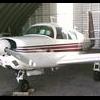Running Ram Air through the clouds
Ever had a fuel problem running ram air while flying through clouds with moisture?
14 members have voted
-
Members Online
- gabez
- Skyland
- 1980Mooney
- Slick Nick
- DanM20C
- Scooter
- Utah20Gflyer
- toto
- mikechaf
- exM20K
- Marc_B
- Jackk
- EricJ
- LANCECASPER
- CaliDreaminMr
- MikeOH
- Crawfish
- KSMooniac
- varlajo
- NickG
- 0TreeLemur
- eman1200
- jrwilson
- anthonydesmet
- cbarry
- Cfidave
- redbaron1982
- Ulysse
- Christian S
- OR75
- Robert Hicks
- PT20J
- jamesyql
- mluvara


Recommended Posts